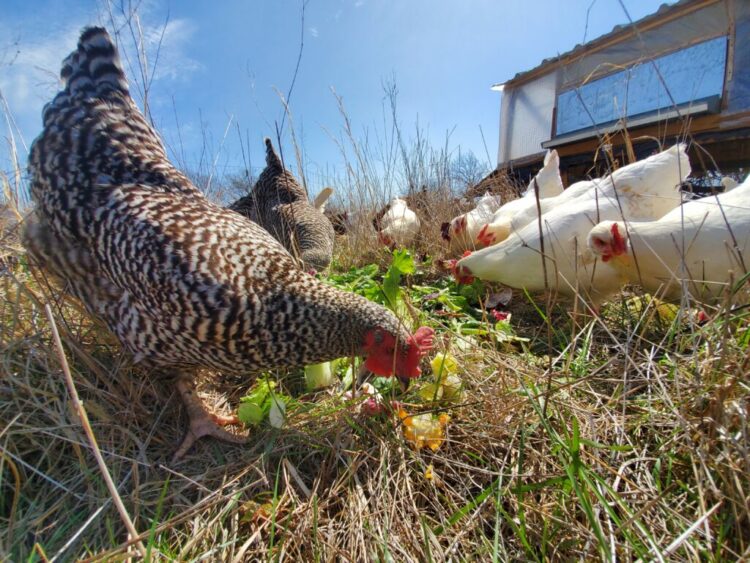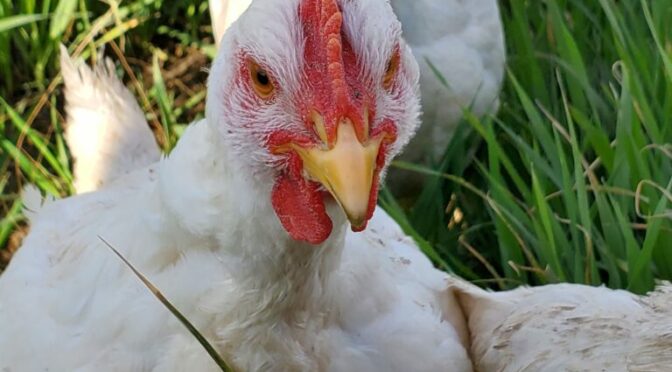
Highly pathogenic bird influenza has come to Kansas and families who have backyard birds should examine their flocks, according to both state and federal press releases.
The U.S. Department of Agriculture’s Animal and Plant Health Inspection Service confirmed a highly pathogenic avian influenza (HPAI) in Franklin, Dickenson, and Sedgwick Counties recently according to recent press releases https://agriculture.ks.gov/news-events/news-releases/2022/03/12/usda-confirms-highly-pathogenic-avian-influenza-in-backyard-flock-in-kansas.
Highly pathogenic avian influenza (HPAI) is a contagious viral disease that can infect chickens, turkeys, and other birds.
The Kansas Department of Agriculture officials have quarantined the affected areas, and birds on the property are destroyed to prevent the spread of the disease.
All who are involved- from a small backyard chicken flock to a large commercial producer- should look at their flocks for signs of the flu.
“Coughing, sneezing, discharge around the eyes, lack of energy, not moving around, not making noise,” are some of the signs, Heather Lansdowne, Kansas Dept. of Agriculture Director of Communications said.
Other signs are decreased egg production and/or soft-shelled, misshapen eggs; incoordination; and diarrhea, according to the KDA press release. Avian influenza can also cause sudden death in birds even if they aren’t showing other symptoms.
If these symptoms are observed in your birds, immediately contact your veterinarian, according to a press release. If you don’t have a regular veterinarian, contact KDA’s Division of Animal Health office toll-free at 833-765-2006.
There are procedures intended to protect humans or animals against disease or harmful biological agents, which are called biosecurity measures that can be done to help stop the spread of the flu.
Find guidance on biosecurity on the KDA Division of Animal Health webpage at agriculture.ks.gov/AvianInfluenza. More biosecurity resources as well as updates on the current HPAI status nationwide can be found on the APHIS website at: https://www.aphis.usda.gov/aphis/ourfocus/animalhealth/animal-disease-information/avian/avian-influenza/2022-hpai.
According to the U.S. Centers for Disease Control and Prevention, the recent HPAI detections do not present an immediate public health concern. No human cases of these avian influenza viruses have been detected in the United States.
Proper handling and cooking of all poultry and eggs to an internal temperature of 165 ˚F are recommended as a general food safety precaution.
For more information about HPAI, including the current status of the confirmed cases in other states as well as more information about biosecurity for flocks, go to KDA’s avian influenza webpage at agriculture.ks.gov/AvianInfluenza or call KDA at 833-765-2006.
Basic Facts of HPAI
What is avian influenza?
• Avian influenza is a rapidly spreading viral disease that mainly affects birds.
Is it contagious, who is susceptible and how is it transmitted?
• Yes, it is contagious.
• Although rare, humans and other mammals can be vulnerable to the disease.
• The disease may spread through contact with infected birds or ingestion of infected food or water.
• Birds are the most susceptible animal.
• Exists naturally in wild birds.
What are the symptoms?
• Cough
• Sneezing
• Respiratory distress
• Decrease in egg production
• Sudden death
How do I avoid it or stop it from spreading?
• Notify veterinarian of any suspected disease.
• Stay informed about the health of neighboring birds.
• Do not move animals from farm to farm.
• Keep flock away from wild birds.
• Be sure your birds have no contact with contaminated birds.
• Isolate new birds.
• Restrict unauthorized people and vehicles from the farm
• Disinfect tires, equipment, and clothing going on and off the farm
• Quarantine contaminated areas and birds immediately
• Dispose of all dead birds properly
How is it treated?
• At this time there is no known treatment
Are there public health risks?
• Although rare, humans and other mammals can be vulnerable to the disease. If you have come in
contact with the disease and are showing symptoms, report it to your physician immediately
• There have been no reported cases due to consumption of infected, cooked meat.
